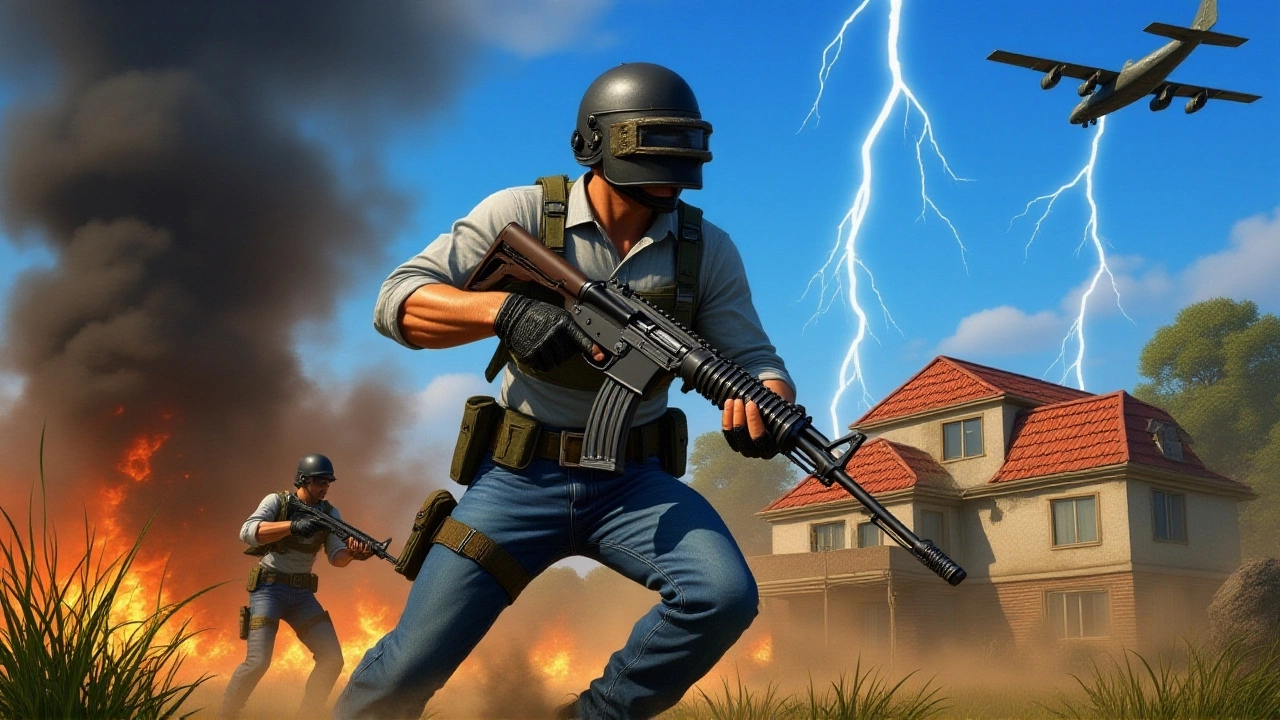
On July 28 2022, Krafton Inc., the South Korean developer behind Battlegrounds Mobile India, was ordered to remove the game from the Google Play and Apple App stores by India’s Ministry of Electronics and Information Technology under Section 69A of the Information Technology Act, effectively triggering the BGMI ban.
The decree, signed off by Prime Minister Narendra Modi, cited “sovereignty and integrity of India, defence of India, security of the state” as the rationale, although the government has not disclosed any concrete evidence.
According to Chenyu Cui, Senior Analyst for Games at Omdia, the ban “cuts off access for over 100 million registered users” and raises fresh questions about data flows possibly linked to Chinese servers, despite Krafton being a South Korean entity.
Background: From PUBG Mobile to BGMI
Back in September 2020, India banned PUBG Mobile along with 117 Chinese apps after a deadly border clash with China. The move, also under Section 69A, was part of a wider push to curb apps deemed a threat to national security. Krafton responded by launching an Indian‑specific version, BGMI, in May 2021, positioning it as a home‑grown alternative that would not route data through Chinese infrastructure.
BGMI quickly grew; TechCrunch reported that by early 2022 the title boasted more than 100 million registered Indian users, spawning a vibrant esports scene with professional tournaments, streaming stars, and a robust in‑game economy.
The July 28 Decision and Immediate Fallout
When the ban took effect at 12:03 PM UTC, gamers across India woke to “App not found” messages on their phones. Within hours, social media was flooded with screenshots of lost progress, complaints about vanished in‑game purchases, and calls for government clarification.
Industry analysts estimate that the sudden removal erased roughly $45 million in annual revenue for Indian publishers, advertisers, and streaming platforms that relied on BGMI’s audience.
Industry Reaction: A Letter to the Prime Minister
On August 9 2022, a coalition of seven Indian gaming firms—including Outlier Games, Story Pix, Lucid Labs, Roach Interactive, Godspeed Games, and Uniplay Digital—sent a formal letter to Narendra Modi demanding “uniform and fair treatment” for all gaming entities.
The letter described the BGMI ban as an “unfortunate event” that runs counter to the nation’s goal of nurturing high‑skill entrepreneurs. It warned that arbitrary decisions could deny an entire generation of youth the chance to build careers in esports, content creation, and game development.
Impact on the Indian Esports Ecosystem
BGMI had become the backbone of India’s esports infrastructure. Tournaments like the “BGMI Pro League” routinely attracted prize pools exceeding ₹2 crore (≈ $24,000), while top streamers amassed millions of followers on platforms such as YouTube Gaming and Twitch.
The ban forced organizers to scramble for alternatives. Some shifted to titles like Call of Duty: Mobile or Valorant, but none matched BGMI’s player base. According to XP‑Pen’s 2022 blog, the disruption threatened up to 15,000 jobs tied directly or indirectly to the game.

Legal and Security Rationale
While the Ministry cited “national security,” the exact data‑privacy concerns remain murky. Reuters cited unnamed sources saying officials feared the game was “sharing data with China,” even though Krafton’s servers are based in South Korea. Critics argue the ban reflects a broader precautionary stance rather than concrete evidence.
Legal experts point out that Section 69A allows the government to block any online content that threatens “sovereignty,” a clause that has been invoked over 300 times since 2020. The lack of transparent adjudication, however, leaves developers in a legal grey area.
What Lies Ahead for Gaming in India
Looking forward, the industry is lobbying for clearer guidelines. The Gaming Federation of India (GFI) has proposed a “sandbox” framework where developers can demonstrate compliance with data‑localisation norms before launch.
Meanwhile, Krafton has hinted at a possible relaunch under a new brand, contingent on satisfying Indian data‑security requirements. If a compromise is reached, India could regain a key pillar of its burgeoning digital entertainment market.
Key Facts
- Date of ban: 28 July 2022 (12:03 PM UTC).
- Legal basis: Section 69A of the Information Technology Act, 2000.
- Primary developer: Krafton Inc..
- Estimated Indian user base: >100 million registered accounts.
- Economic impact: Roughly $45 million in annual revenue affected.
Frequently Asked Questions
Why did India ban BGMI despite it being developed by a South Korean company?
Officials said the game raised concerns about data sharing with Chinese servers, which could jeopardise India’s sovereignty and security. The ban was enacted under Section 69A, which gives the government broad powers to block content deemed a threat.
How many Indian gamers were affected by the ban?
TechCrunch estimates over 100 million registered users in India lost access to their accounts, game progress, and in‑app purchases when BGMI was removed from app stores.
What was the reaction of the Indian gaming industry?
Seven leading game developers, including Outlier Games, sent a letter to Prime Minister Modi urging uniform treatment. Esports teams, tournament organizers, and streamers also voiced concerns about lost revenue and career instability.
Could BGMI return to Indian stores in the future?
Krafton has hinted at a possible relaunch under a different brand, provided it meets India’s data‑localisation and security standards. Ongoing negotiations with the Ministry of Electronics and Information Technology could pave the way for a comeback.
What does the ban mean for the broader Indian tech policy?
The action underscores India’s increasingly cautious stance on foreign‑origin apps. It may push developers toward stricter data‑storage compliance and encourage the government to formalise clearer guidelines for the gaming sector.

Write a comment